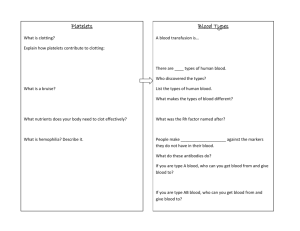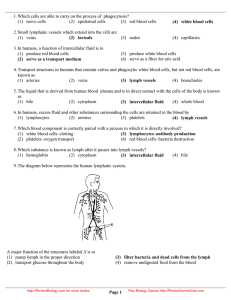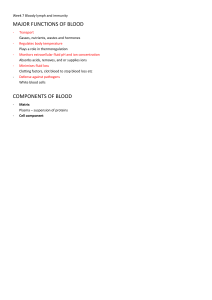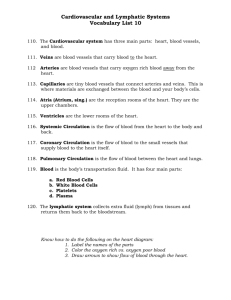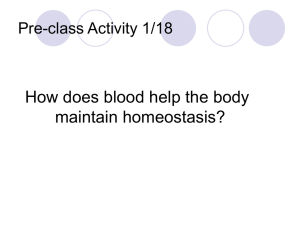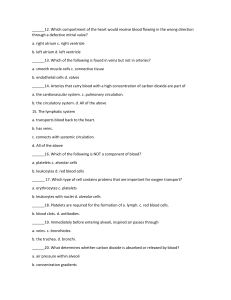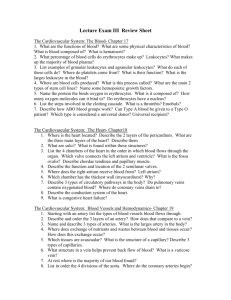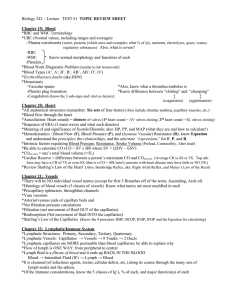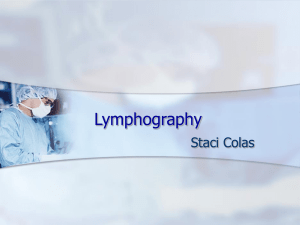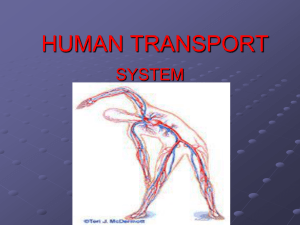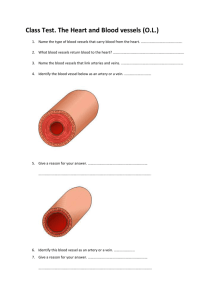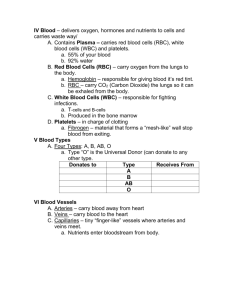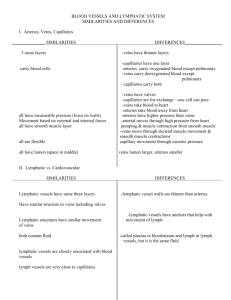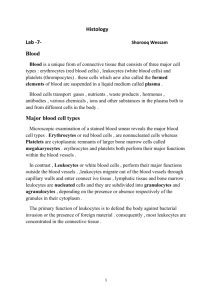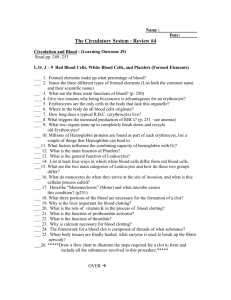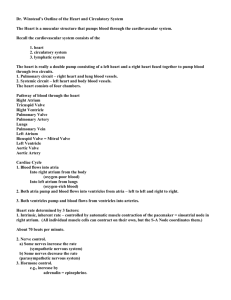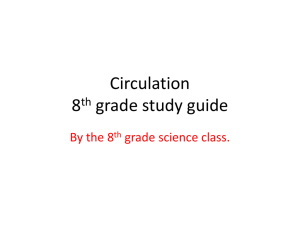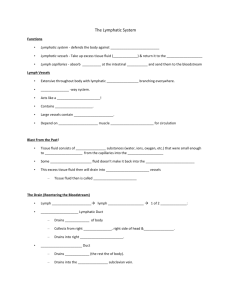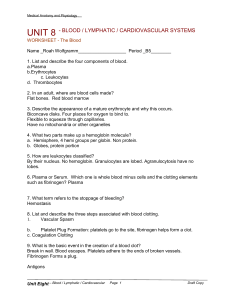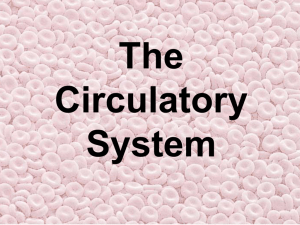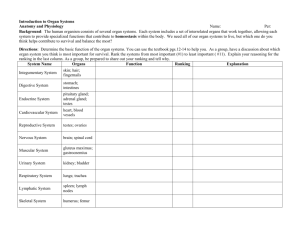Print › Cardiovascular/Circulatory/Lymphatic Systems | Quizlet
advertisement
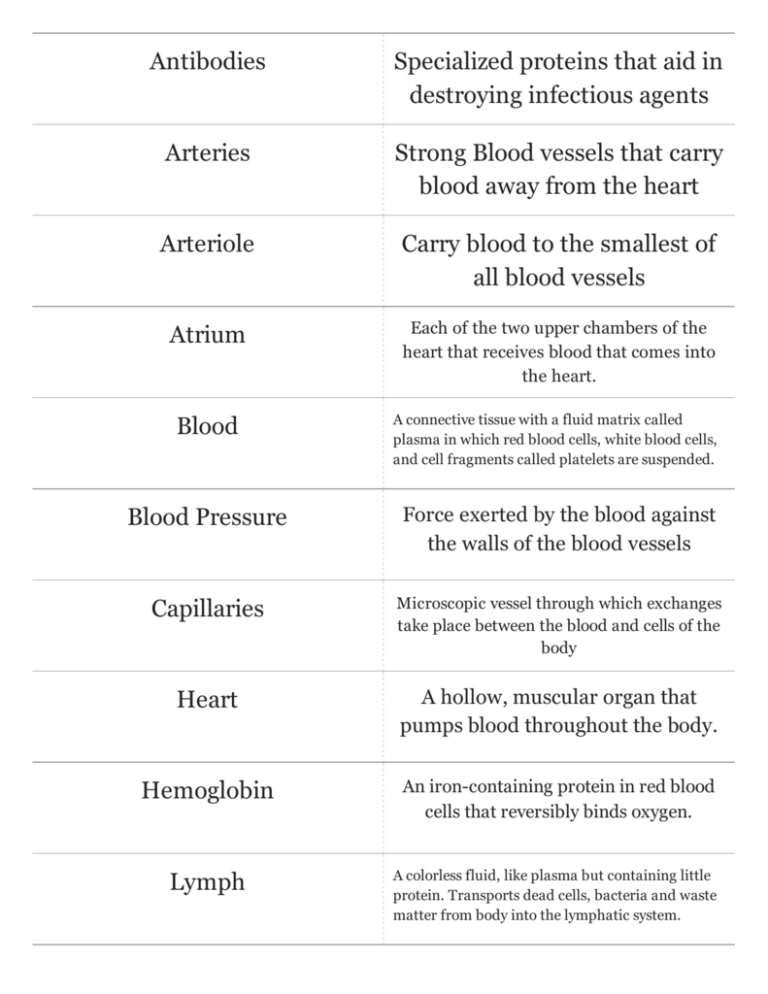
Antibodies Specialized proteins that aid in destroying infectious agents Arteries Strong Blood vessels that carry blood away from the heart Arteriole Carry blood to the smallest of all blood vessels Atrium Each of the two upper chambers of the heart that receives blood that comes into the heart. Blood A connective tissue with a fluid matrix called plasma in which red blood cells, white blood cells, and cell fragments called platelets are suspended. Blood Pressure Force exerted by the blood against the walls of the blood vessels Capillaries Microscopic vessel through which exchanges take place between the blood and cells of the body Heart A hollow, muscular organ that pumps blood throughout the body. Hemoglobin An iron-containing protein in red blood cells that reversibly binds oxygen. Lymph A colorless fluid, like plasma but containing little protein. Transports dead cells, bacteria and waste matter from body into the lymphatic system. Lymph nodes Located in clusters along the pathway of lympathetic vessels; Filter blood; occur in groups or clusters Lymphocytes A type of white blood cell that make antibodies to fight off infections Plasma Pale-yellow fluid of blood and lymph containing dissolved proteins, glucose, clotting factors, salts, and hormones in which erythrocytes and leukocytes and platelets are suspended Platelets Thrombocytes; cell fragments that are involved in blood clotting Pulse Beat of the heart as felt through the walls of the arteries. Red Blood Cells (RBC) Erythrocytes; blood cells containing hemoglobin that carry oxygen through the bloodstream Serum Clear fluid portion of blood that remains after clotting spleen An organ that is part of the lymphatic system; it produces lymphocytes, filters the blood, stores blood cells, and destroys old blood cells. Thymus An immune organ located near the heart. The site of T cell maturation and is larger in children and adolescents. Tonsils Collections of lymphatic tissue located on each side of the throat Veins Blood vessels that carry blood back to the heart Ventricles Two lower chambers of the heart Venule The very small veins that connect capillaries to the larger veins White Blood Cells Leukocytes; blood cells that perform the function of destroying disease-causing microorganisms
